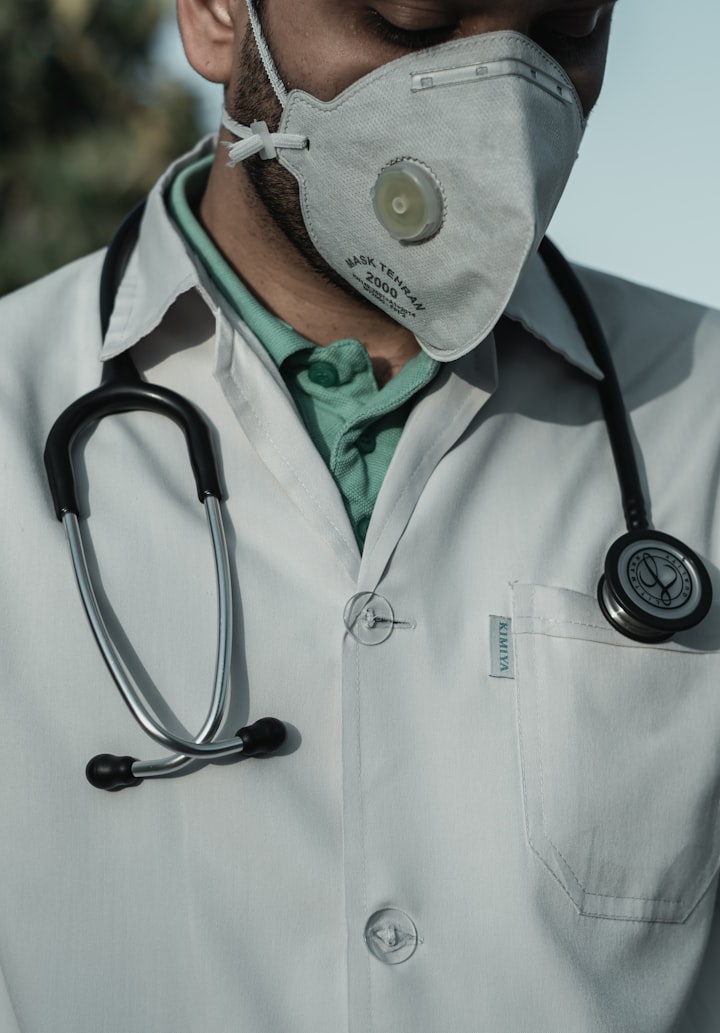That One Appointment Men Try To Avoid And Why They Shouldn't.
November Is Men's Health Awareness Month.

Movember is a campaign that asks specifically to pay attention to, talk about, and raise funds and awareness for men's cancers and other male health issues. This goes from November 1st to November 30th and is something that is needed. While I may not be a doctor, I've had some experiences around certain subjects. From those, I learned quite about the mistakes made by men, the things that men avoid, and the dangers of not paying attention to our health. So, let's start talking about men's health.
As men, there are things we don’t like to discuss. Maybe it’s because of stigmas or phobias. Maybe it’s male pride. There are few things in the world that men avoid more than commitment or responsibilities when they’re younger. Colonoscopies are one of those things.
Finding cancer early on is the best course of action. When the cancer is small and hasn’t yet spread, it often allows for more treatment options. There are early signs and symptoms with some cancers that can be recognized, but that’s not always the case and everybody is different.
It’s not a comfortable thing to think about. Cancer is a scary and destructive disease. But, I remember quite vividly, a surgeon telling me and my family, that if my father had started getting checked at an earlier age the polyps would have been the size of a number two pencil eraser. He described some of the ones he removed as being headed from golf ball to baseball-sized. Even if you’re not the type to get regular check-ups, there are signs and symptoms that are recognized by the AMA and ACS. Knowing those may mean the difference in treatment options.
- A change in bowel habits, such as diarrhea, constipation, or narrowing of the stool, that lasts for more than a few days
- A feeling that you need to have a bowel movement that’s not relieved by having one
- Rectal bleeding with bright red blood
- Blood in the stool, which might make the stool look dark brown or black
- Cramping or abdominal (belly) pain
- Weakness and fatigue
- Unintended weight loss
If you have any of these symptoms, it’s important to get to a doctor and get them accurately diagnosed. Sure, it may be nothing. But, it is a case of better safe than sorry. To date, I’ve known seven people that avoided getting checked, didn’t pay attention to the signs and passed away before they were 50 years old. My father left us 11 years ago due to this dreaded thing that he avoided dealing with.
For those that have never seen one done, a colonoscopy sounds scary but is a fairly common procedure now. Admittedly, it doesn’t sound like a lot of fun. However, after seeing one done, as an outpatient, office procedure, it’s no longer as scary as it once sounded. The apparatus that is used to insert the scope is made for the purpose and nowhere near as large as most of us imagined as we feared the age our parents warned would come one day.
I was in the room when one of these procedures was being done. The doctor was very professional about the whole thing. He instructed the custody that I escorted to the procedure, gave him all the information that a patient would need, and then a slight sedative to relax. The man, who was in his mid-fifties, was like a lot of “macho” guys that don’t feel good about another guy sticking something inside of him. He had put the procedure off, at a point in time where men at 50 were recommended to get checked. That number is now 45 years old.
Watching the doctor slide the scope in, and watching the custody’s face, it was clear that it was no more uncomfortable than a slight bit of pressure. He barely reacted. Once in, the doctor can manipulate the scope back and forth with a fair amount of ease. It gives them a 360-degree view of your insides.
With the scope, the doctor can remove a polyp, as a grappling-like claw is extended. The polyp is then tugged away from the inner wall of your intestines. The doctor described the feeling as “a slight pressure” on your stomach. I watched the custody that I was there to keep secure and he only grimaced slightly. Four polyps later, and the procedure was done.
Colonoscopies are a minimally invasive procedure, in my honest opinion after having watched other procedures, and for the tiniest amount of discomfort and time spent vulnerable, can save a life. I honestly believe it’s the vulnerability that makes men hesitant to accept the ravages of time on their insides and make sure they’re taken care of before it’s too late. Sure, some cases happen before they’re able to be anticipated. In my dads’ case, he had the age for it to be justifiable as a form of preventative care. As someone that’s lost friends and family, as I head toward my 50th birthday, I’m already planning my first one.
Oh, and if being awake sounds like it’s too much, there are still options available for people to be asleep when they’re done. Check with your insurance carriers early on. Many have allowances for certain preventative procedures, no doubt as a way to keep from paying the sky-high costs of cancer.
About the Creator
Jason Ray Morton
I have always enjoyed writing and exploring new ideas, new beliefs, and the dreams that rattle around inside my head. I have enjoyed the current state of science, human progress, fantasy and existence and write about them when I can.






Comments
There are no comments for this story
Be the first to respond and start the conversation.